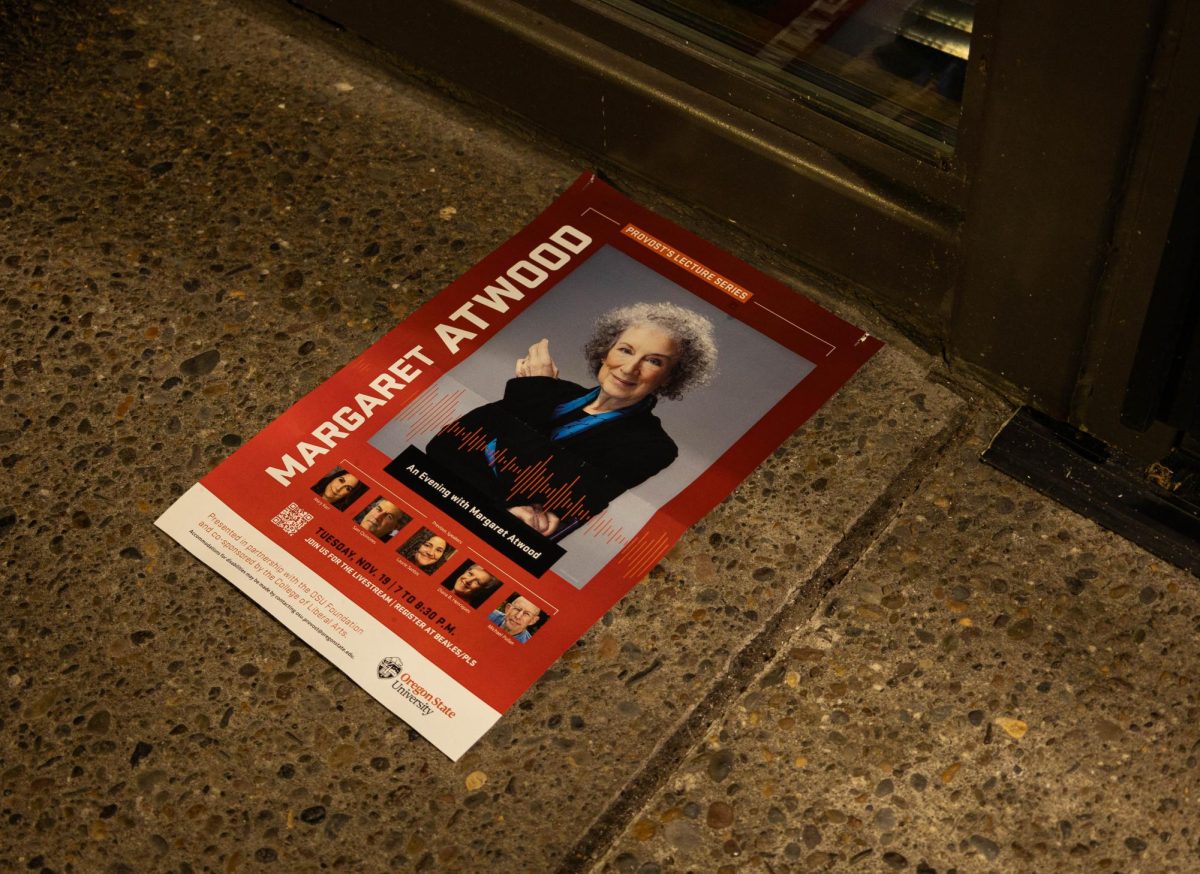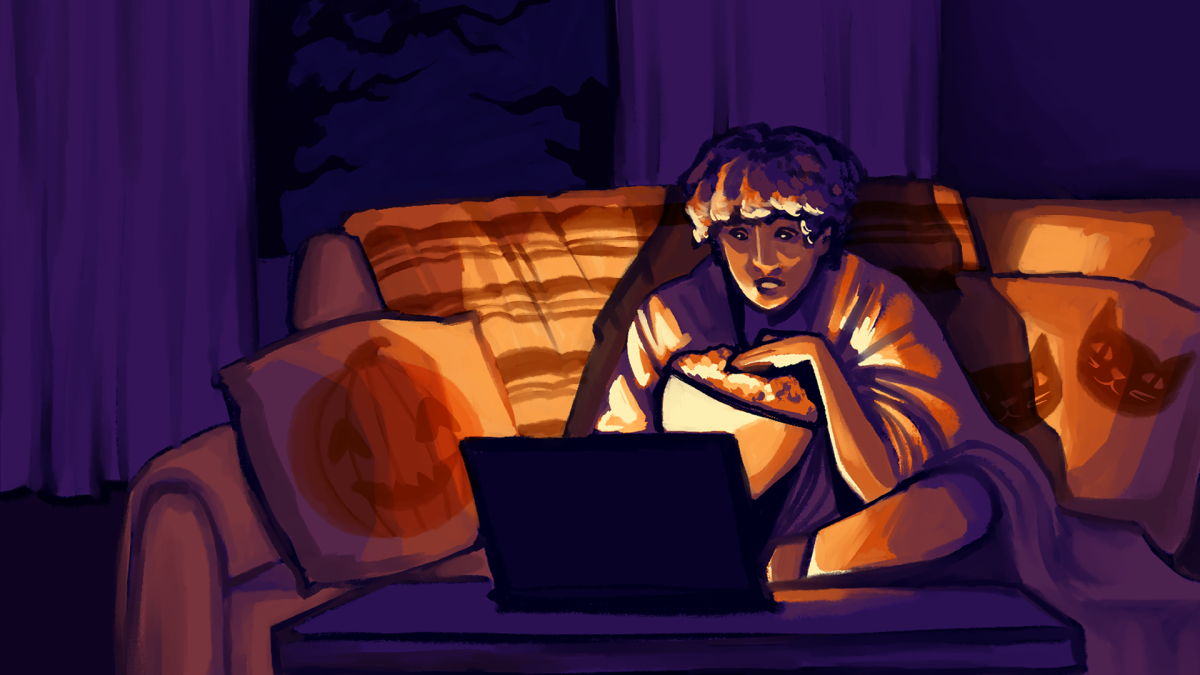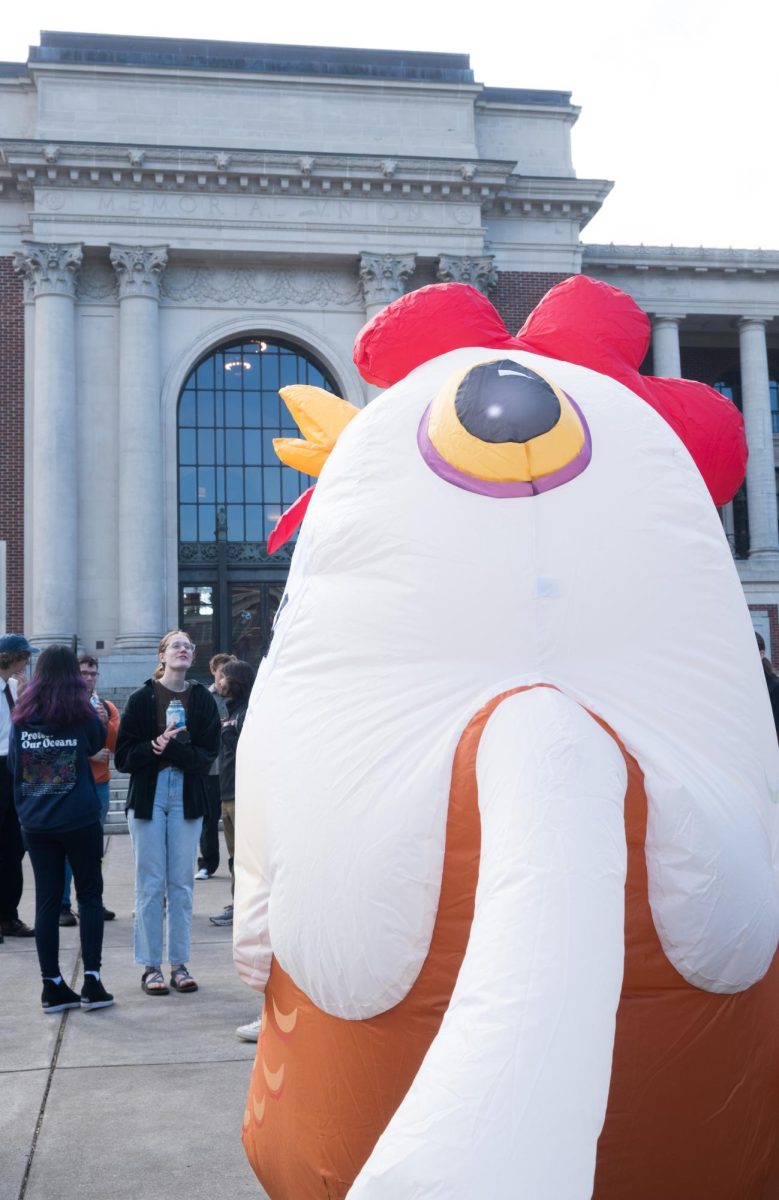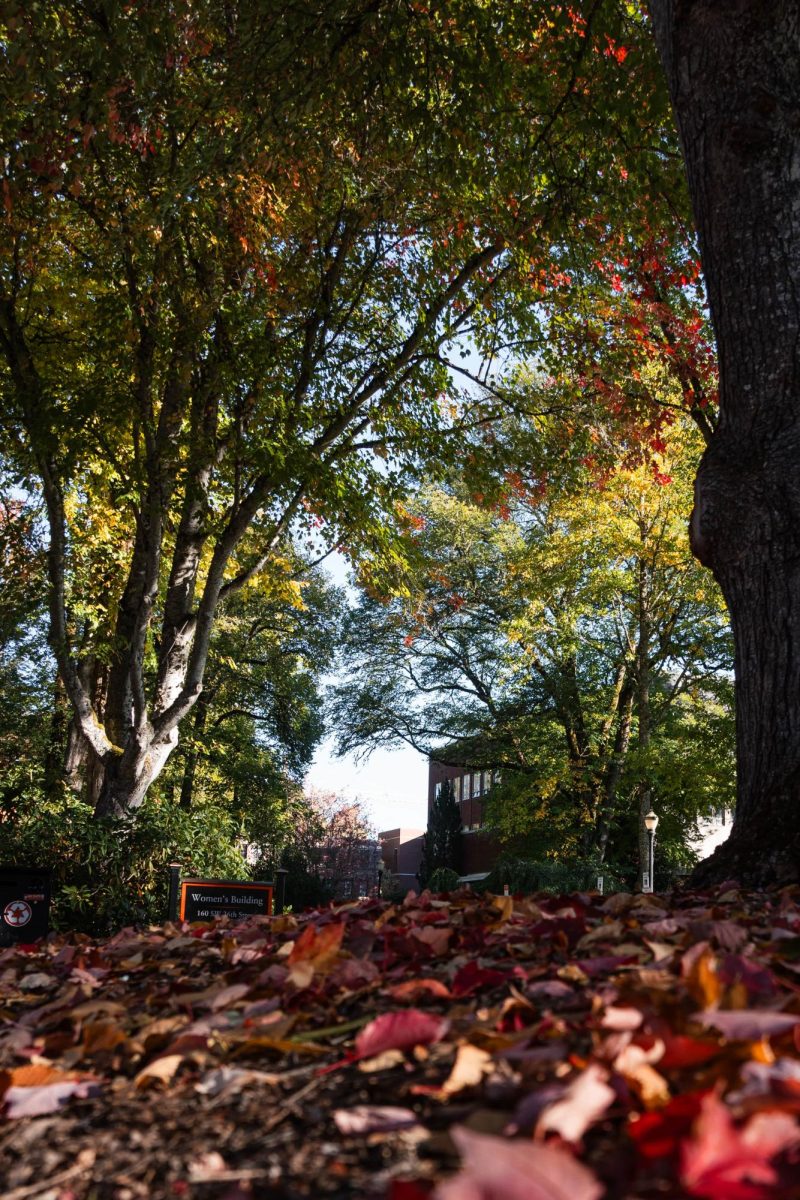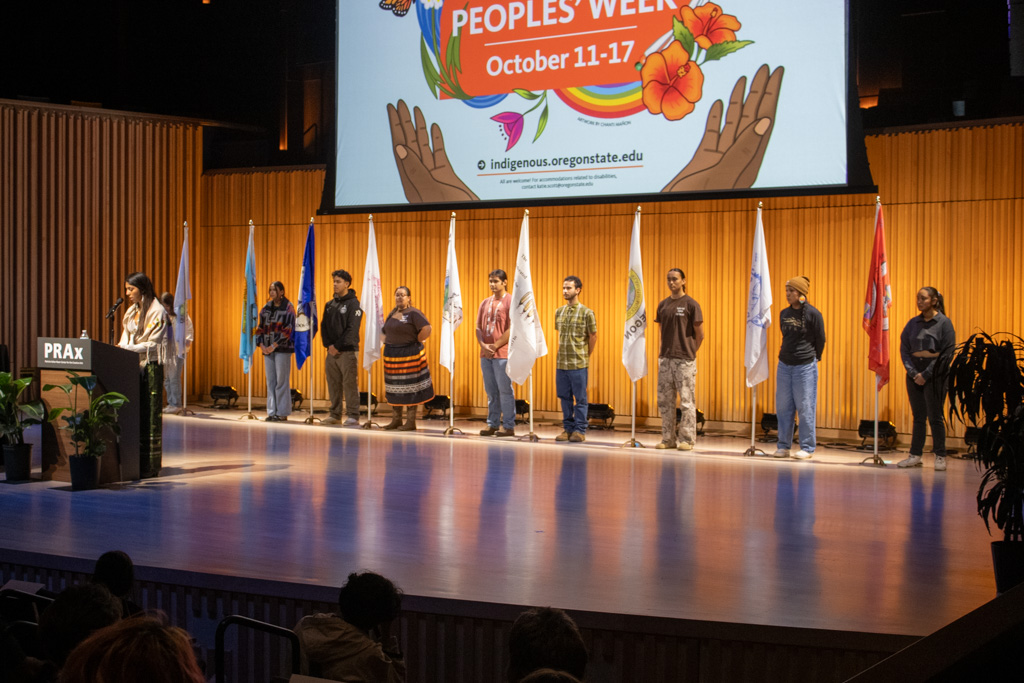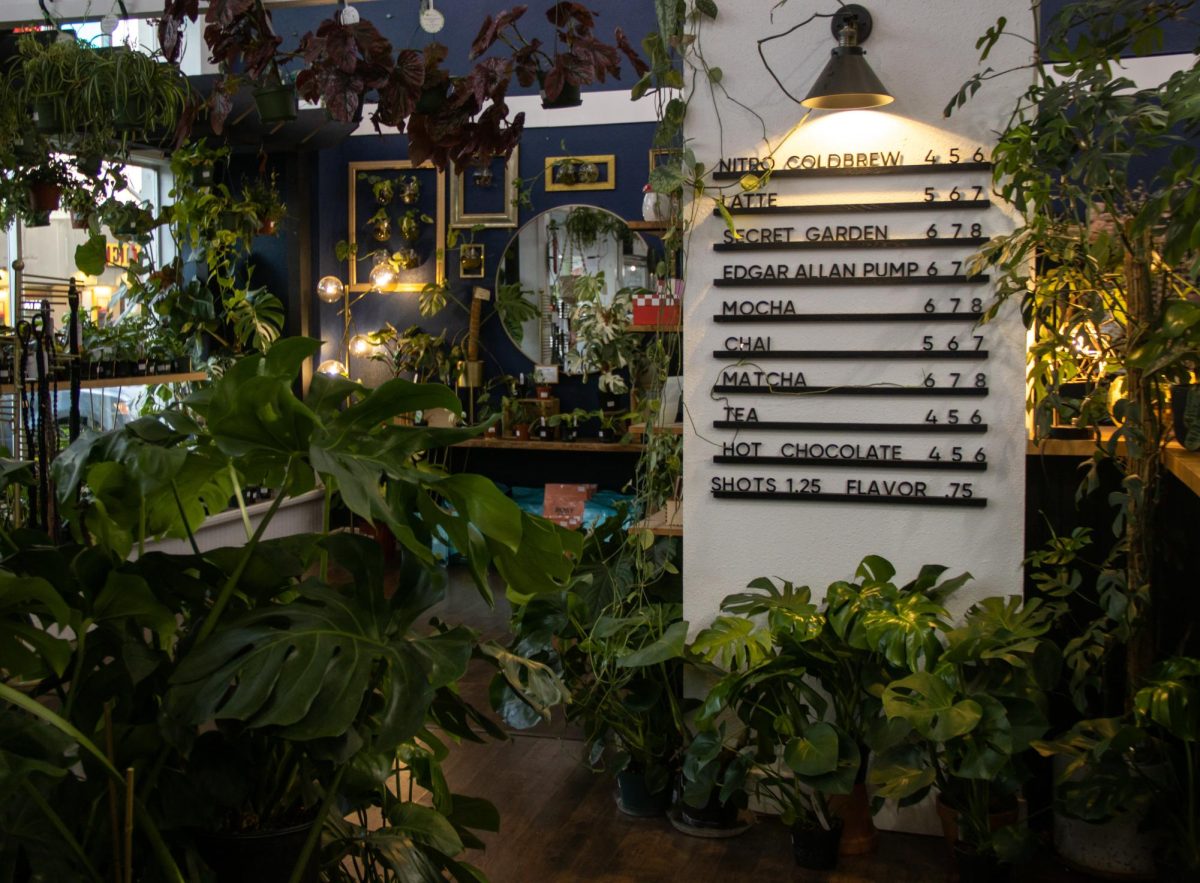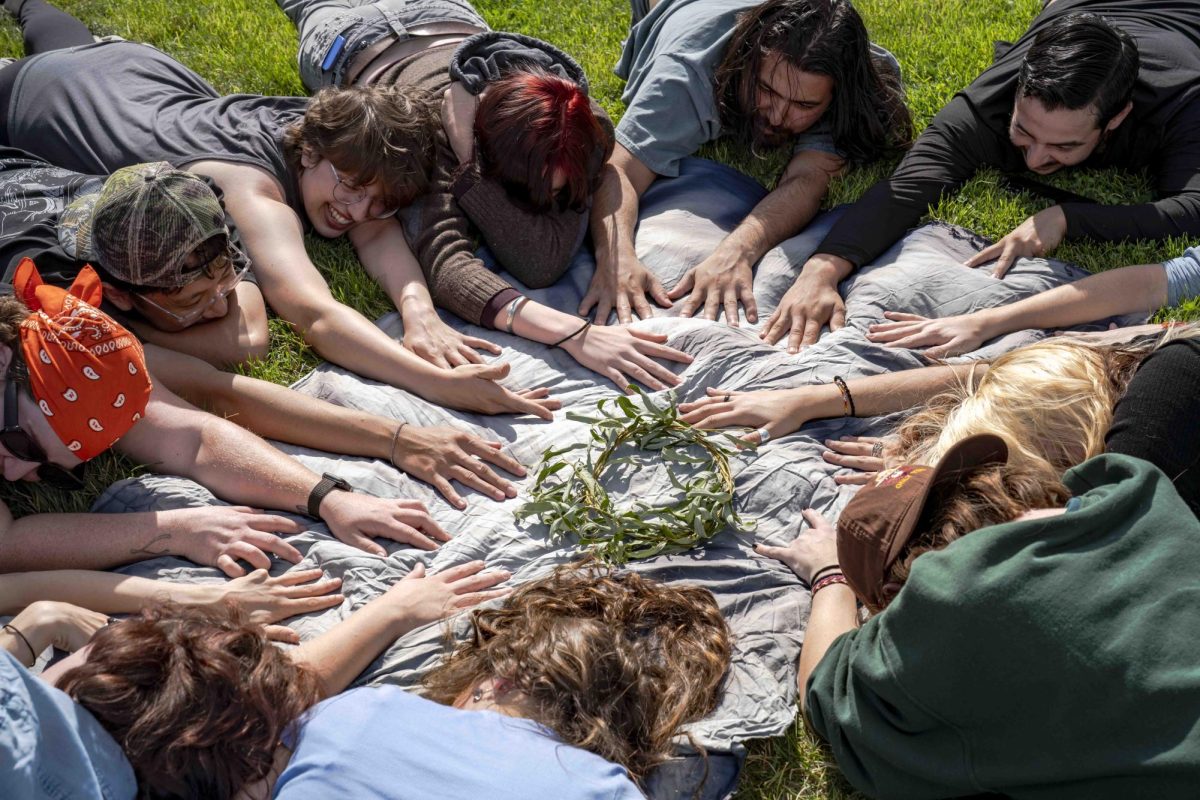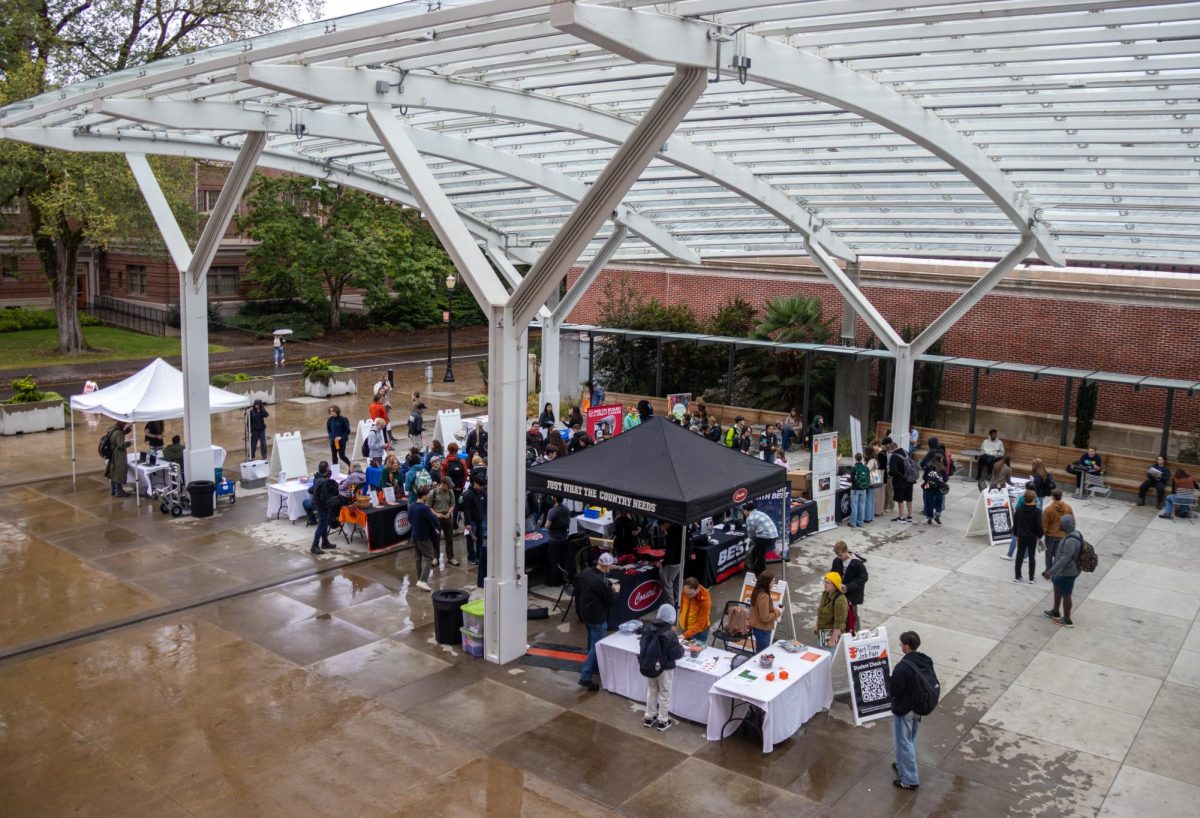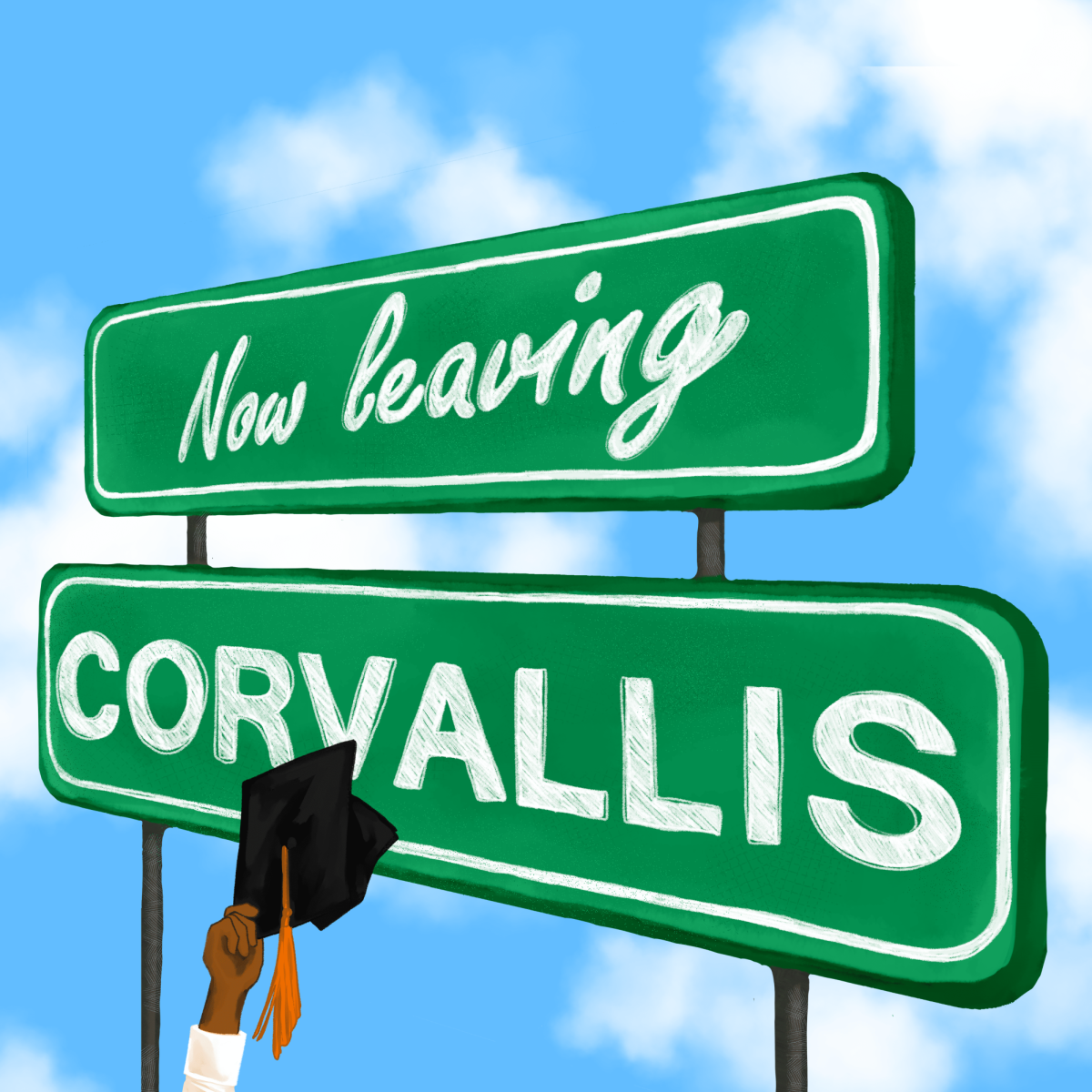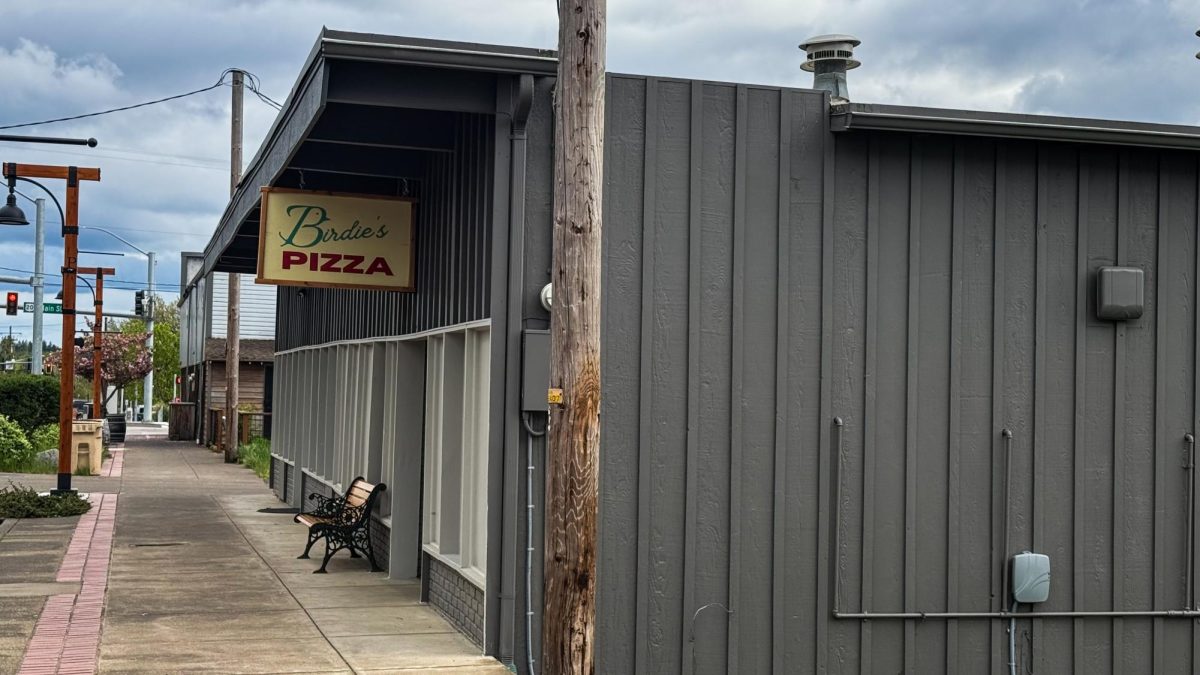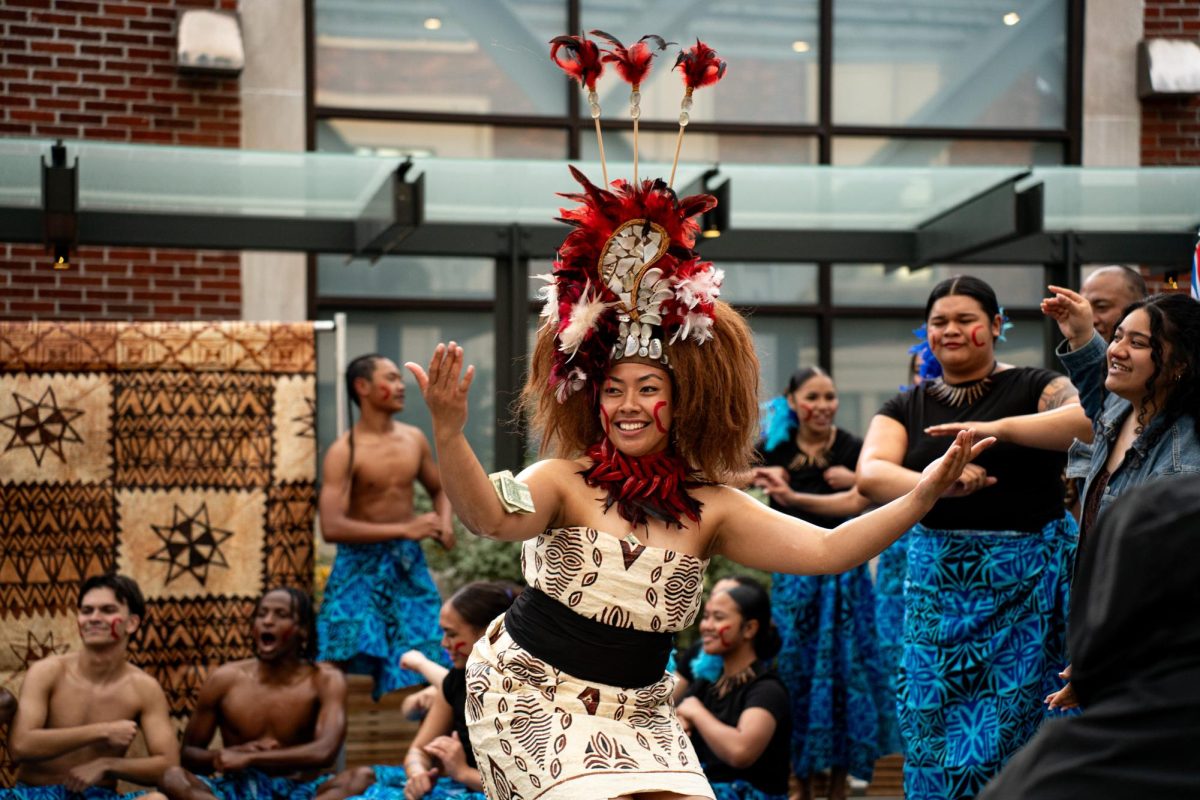From biblical allegory, the current political events of America, the Berlin Wall, reproductive rights, second-wave feminism, to the world of literature turning to hit TV shows, an evening with Margaret Atwood covered everything.
On the night of Nov. 19, Margaret Atwood, the literary titan and world-renowned author of “The Handmaid’s Tale,” was invited to speak at Oregon State University by the Office of the Provost.
“It is pretty stunning, she’s showing up two weeks after the election,” said Jennifer Richter, associate professor of creative writing here at OSU. “Some of us, in these spaces of confusion or distress, are looking for answers, and it is a really charged, emotional time for her to be here.”
The students and staff of OSU alike were abuzz with excitement to hear what Atwood would say, regarding both her impressive history with writing and her take on recent political events in the country.
“There’s so much excitement about it. … Everyone is so dialed up, everybody is out of their minds excited. It feels really fun to be part of that energy,” Richter said.
Richter was given the opportunity to interview Atwood, which she said was an honor after having taught her work for many years. Richter said she initially read her famous book, “The Handmaid’s Tale,” in college, which she said greatly impacted what she thought was possible in literature.
“I can’t imagine a better speaker to show up now,” Richter said.
Less than four hours before Atwood’s talk, an email sent by the Office of the Provost stated the event would be moved to a livestream only. The email didn’t explicitly explain the reason behind the decision.
In a statement that she read shortly after the livestream began, Atwood addressed the change made by the Provost’s office.
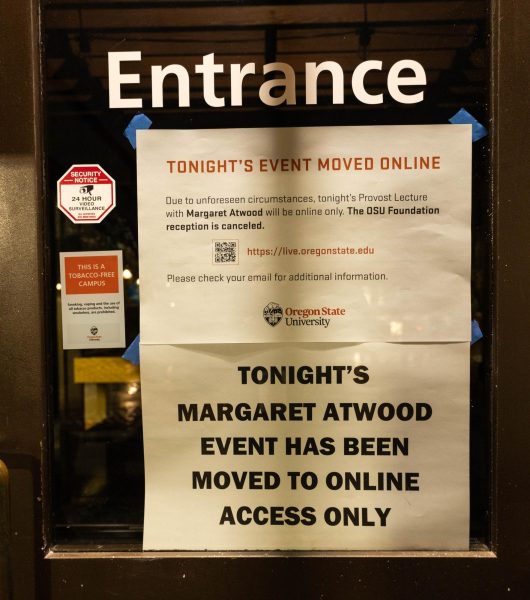
“It seems there is a graduate student TA strike going on, for higher wages and a shorter contract that won’t lock people in for five years,” Atwood’s statement read. She also explained that due to “anonymous threats of violence,” she wouldn’t want to endanger audience members, which is why the event was moved to a livestream only.
“I would not cross a picket line uninvited. … The university gave me the option of canceling. The strikers, on the other hand, said they didn’t want to cancel or disrupt the event — thereby pissing off 1,200 people, which would not have helped their position,” Atwood read from her statement during her conversation with Richter.
As a grad student once herself, in a time before facial piercings, when women had to wear long skirts, as Atwood described, she knew exactly the type of challenges the strikers were facing. She wished both sides a successful outcome, and left the grad students with this message:
“A hint from the Oracle: The incoming federal government does not have warm, friendly feelings towards universities. Get it done before then and hide under the table,” Atwood said.
On the topic of her famous book, “The Handmaid’s Tale,” translated into over 40 languages and with over 8 million copies sold internationally, according to the Canadian Encyclopedia, Atwood had many insights to share.
Atwood suggested that drastically falling birthrates and biblical literalism might be some of the main reasons behind the sense of fear today.
In her own words, Atwood considers some of the tales and parables from the Bible to be fairly hair-raising. One in particular she recalls is the story of Rachel and Leah, the wives of Jacob. Atwood recounts the story, saying the women were tasked with having as many children as they could, and when they couldn’t produce enough, their handmaids were made to produce children for the tribes of Israel as well.
“It wasn’t one man and one wife. It was one man, two wives and two handmaids, so there were five people involved in all of that,” Atwood said. “And what did the handmaid’s think about it? We don’t know. That’s why that’s at the front of the book.”
Richter said there was an incredible urgency in the questions from the audience for Atwood. “This (events from “The Handmaid’s Tale”) is happening now in some places in the country,” Atwood said. “How many women bleeding out in parking lots do there have to be, how many women dying of ectopic pregnancies do there have to be before people figure out that maybe this (banning abortion) is not the right thing to be doing?”
Richter said people who submitted questions from Atwood largely asked for help and for hope.
“Hope is something we (humans) come with, as part of the package,” Atwood said. “You have hope, you do wake up in the morning thinking, ‘What might happen today? Maybe it will be good.’”
Richter eagerly asked Atwood what she was up to now. Atwood has published over 50 works in her lifetime, including graphic novels, fiction and nonfiction alike, poetry, radio and television scripts, and children’s books just to name a few.
“Pick a genre, she’s done it and she’s done it well,” Richter said.
“I’m writing a ‘literary memoir,’” Atwood said. “I think a memoir should be what you can remember. It’s not the same as an autobiography. It’s not the same as a biography. … And what you can mostly remember, if you’re like anybody else, is stupid things and catastrophes.”
To conclude their conversation, Richter asked Atwood to read a poem from her newest book of poetry, “Paper Boats,” published just this month. A sense of something deeply significant happened as Atwood put on her glasses and read out the chosen poem, a piece called “Lucky.”
“It’s merely there, a condition for stars. We did not say, ‘Everything’s winding down.’ ‘We’ve been very lucky,’ we said instead,” read Atwood from her collection.
Despite the alleged threat, the strike, the current political upheaval and the miles she traveled to get to Corvallis, Atwood engaged in a very heartwarming conversation with Richter in front of the large audience tuning in online, including the students and staff of OSU and beyond.
A reminder to everyone from Atwood that Richter brought up during the interview, from an Instagram post last week: “Be comforted: the End of Days is not yet.”

